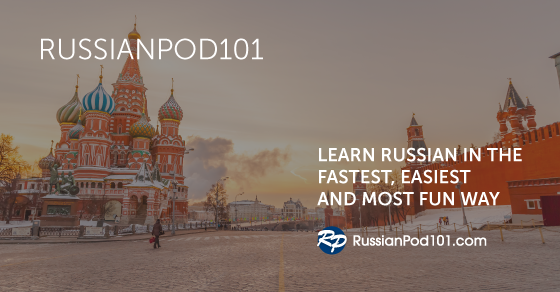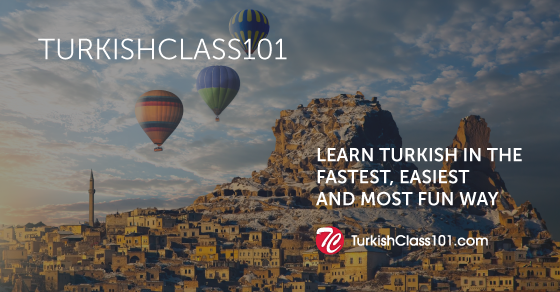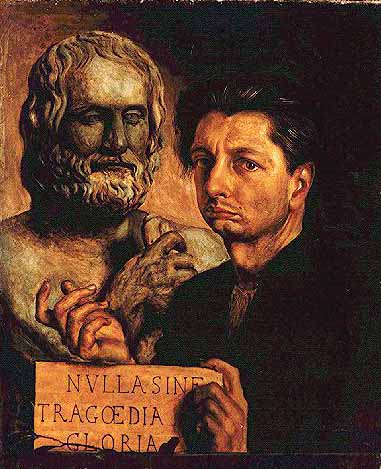برچسب: Your
-

Talking About Your Occupation in Russian – Review
Do you remember how to say student? Студент. (Student.) And how to say investor? Инвестор. (Investor.) Do you remember how to say researcher? Исследователь. (Issledovatel’.) And how to say teacher? Учитель. (Uchitel’.) Do you remember how to say engineer? Инженер. (Inzhener.) And how to say driver? Водитель. (Voditel’.) Do you remember how to say doctor? Врач. (Vrach.) How to say businessman? Бизнесмен. (Biznesmen.) Do you remember how to say actor? Актер. (Akter.) And how to say worker? Рабочий. (Rabochiy.) Do you remember how to say I’m a occupation? Я профессия. (Ya professiya.) And how about the phrase No, I’m not a student. I’m an investor. Нет, я не студент. (Net, ya ne student.) Я инвестор. (Ya investor.) Last, how would you say the phrase No, I’m not a teacher. I’m a doctor. Нет, я не учитель. (Net, ya ne uchitel’.) Я врач. (Ya vrach.) Well done! In this lesson you learned how to talk about your occupation in Russian. Thanks for watching! I’m Anastasia and I will see you again on RussianPod101.com. До скорой встречи! (Do skoroy vstrechi!) Пока-пока! (Poka-poka!) -

Talking About Your Hobbies in Russian – Breakdown
Let’s look at the dialogue. When I read, I want you to pay attention to the words showing a hobby. Find what these words are and see how they’re used in the dialogue. Какое у тебя хобби? (Kakoye u tebya chobbi?) What’s your hobby? Моё хобби – рыбалка. (Moyo chobbi – rybalka). My hobby is fishing. The question. Какое у тебя хобби? (Kakoye u tebya chobbi?) The answer. Моё хобби – рыбалка. (Moyo chobbi – rybalka). “У тебя” (“u tebya”) is the formal version of the word “your”. You can also say “твоё” (“tvoyo”) instead of “у тебя” (“u tebya”). For example, “Какое твоё хобби?” (“Kakoye tvoyo chobbi?”). The meanings of these words are the same. And the informal version of the word “your” is “у вас” (“u vas”) or “ваше” (“vashe”). For example, “Какое у вас хобби?” (“Kakoye u vas chobbi?”) Or “Какое ваше хобби?” (“Kakoye vashe chobbi?”). This formal pronoun is usually capitalized to show respect for the other person. And now let’s look at some speaking examples. Моё хобби – путешествия. (Moyo chobbi – puteshestviya). My hobby is traveling. Моё хобби – путешествия. (Moyo chobbi – puteshestviya). Моё хобби – плавание. (Moyo chobbi – plavaniye). My hobby is swimming. Моё хобби – плавание. (Moyo chobbi – plavaniye). Моё хобби – чтение. (Moyo chobbi – chteniye). My hobby is reading. Моё хобби – чтение. (Moyo chobbi – chteniye). By the way Russia is one of the countries where people read the most. People read in the subway, on buses, in lines. Now ebooks are the most popular. Russians prefer to read psychological, motivational, professional literature but they also don’t forget about fiction. Now let’s look at the sentence pattern. This pattern will be the structure that all of our dialogues will follow. Моё хобби – [hobby]. (Moyo chobbi – [hobby]). My hobby is [hobby]. The word [hobby] can be a noun, as shown in today’s lesson, or a verb. The word “cooking” as a noun does not have a proper translation in Russian that could be shown as one word. The word “готовка” (“gotovka”) has a little bit of an informal connotation. It would be better to use the verb “готовить” (“gotovit’”), which means “to cook”. “Моё хобби – готовить” (Moyo chobbi – gotovit’). -

Talking About Your Hobbies in Russian – Review
Do you remember how to say “Fishing?” Рыбалка (rybalka). Рыбалка (rybalka). And how to say “Basketball?” баскетбол . (basketbol). баскетбол. (basketbol). Do you remember how to say “Traveling”? путешествия. (puteshestviya). путешествия. (puteshestviya). And how to say “Swimming”? плавание. (plavaniye). плавание. (plavaniye). Do you remember how to say “Cooking”? готовка. (gotovka). готовка. (gotovka). And how to say “Reading”? чтение. (chteniye). чтение. (chteniye). How to say “Dancing”? танцы. (tantsy). танцы. (tantsy). And how about the word “Drawing”? рисование. (risovaniye). рисование. (risovaniye). Do you remember how to say “Music”? музыка. (muzyka). музыка. (muzyka). Do you remember how to say “My hobby is [hobby]”? Моё хобби – [hobby]. (Moyo chobbi – [hobby]). Моё хобби – [hobby]. (Moyo chobbi – [hobby]). Do you remember how to say “Моё хобби – рыбалка.”? Моё хобби – [hobby]. (Moyo chobbi – [hobby]). Моё хобби – [hobby]. (Moyo chobbi – [hobby]). And how about the phrase “My hobby is traveling”? Моё хобби – путешествия. (Moyo chobbi – puteshestviya). Моё хобби – путешествия. (Moyo chobbi – puteshestviya). Do you remember how to say “My hobby is swimming”? Моё хобби – плавание. (Moyo chobbi – plavaniye). Моё хобби – плавание. (Moyo chobbi – plavaniye). Last, how would you say the phrase “My hobby is reading”? Моё хобби – чтение. (Moyo chobbi – chteniye)). Моё хобби – чтение. (Moyo chobbi – chteniye). Well done! In this lesson, you learned how to talk about your hobbies in Russian. Thanks for watching! I’m Anastasia and I will see you again on RussianPod101.com. До скорой встречи! Пока-пока! (Do skoroy vstrechi! Poka-Poka!) -

How to Give Your Name in Turkish – Part 1
Hello! Merhaba! What’s up everyone? Welcome to another Turkish whiteboard lessons. Today we have a fun topic. We will talk about how to give your name in Turkish. Are you guys ready? Let’s get started. First, let’s look at our dialogue. Merhaba, Ben Demir Dilber. Memnun oldum. Ben de memnun oldum. Ben Defne Deniz Now let’s look at the English translation. Hello, I’m Demir Dilber. Pleased to meet you. I’m also pleased to meet you. I’m Defne Deniz Do you see the structure here? Let’s look at the structure. Let’s see our sentence pattern. Ben [Name] Ben Seda, for example. Or you can say, Adım [Name]. Again, same structure. Ben [Name] Adım [Name] Ben Seda Adım Seda Easy, right? Okay, let’s see what we have here. The grammar. Okay, let’s see the grammar. As you can see, to be verb often omitted in Turkish, which makes it very much easier. Ben means I. As you can see, you don’t say I am. You just say I. Ben Ben Seda Or let’s look at this one. Adım This means my name. My name As you can see, we don’t have my name is. We don’t have M is are. We don’t have the to be. Ben Adım That’s it. Just one word. If you learn that one word, you can say your name in Turkish. Okay, let’s see what we have next. We have the vocabulary. Let’s see our Turkish vocabulary first. Merhaba This means hello. And I want to say something. Normally, we don’t read the H in merhaba. We say Merhaba Let’s see the next one Memnun oldum Pleased to meet you. Let’s see the next one. Ben de memnun oldum. I’m also pleased to meet you. Okay? Okay, let’s see the next part. Let’s see our linguistic insight. If you want to say this, pleased to meet you, in a full proper form, you would say Tanıştığımıza memnun oldum. Okay? I’m pleased to meet you. But literally, tanıştığımıza means that we met. I’m pleased that we met. How this goes? Tanışmak. Okay? This is to meet. And when you add tanıştığımıza, this is the suffix. A little bit complicated for now. But this makes the sentence that we met. So, memnun oldum. I am pleased that we met. Okay? So, you know the formal structure as well. -

Crea il tuo autoritratto. Sei felice? (Create your self-portrait. Are you happy?) – Cyber Italian Blog

Il famoso Giorgio de Chirico ha dipinto un autoritratto in cui si mostra vicino al busto di Euripide (un drammaturgo greco vissuto fra il 485 e 407 a.C.)
La scritta in latino nel quadro dice: “non c’è nessuna gloria senza tragedia”.
De Chirico nel dipinto non sembra essere molto felice.
Se tu adesso ti facessi un autoritratto come sarebbe? Sei felice?The famous Giorgio de Chirico painted a self-portrait in which he appears next to the bust of Euripides (a Greek playwright who lived between 485 and 407 BC).
The Latin inscription on the painting reads: “There is no glory without tragedy.”
De Chirico doesn’t look particularly happy in the portrait.
If you were to paint a self-portrait right now, what would it look like? Are you happy?To practice Italian this week we invite you to read and test..
PRACTICE HERE: Italian/English VersionPicture source: courtesy of collector (private collection)
-

Improve Your Italian Pronunciation with Five Tongue Twisters – Sos Italian
This website uses Google Analytics to collect anonymous information such as the number of visitors to the site, and the most popular pages.
This website uses Pixel Facebook to better measure, optimize, and retarget our marketing campaigns.
This website uses AdSense to enable an analysis of the use of the website and to allow third party vendors, including Google, to use cookies to serve ads based on a user’s prior visits to this website or other websites.
Keeping these cookies enabled helps us improve our website.
[ad_2]
Source link -

Talking About Your Occupation – Part 2
Do you remember how to say “barista”? barista barista Do you remember how to say “I”? ben ben What about “I’m a barista”? Ben baristayim. Ben baristayim. Do you remember how to say “student”? öğrenci öğrenci What about “I am not a student”? Öğrenci değilim. Öğrenci değilim. What about “no”? hayir hayir Do you remember how to say “No, I’m not a student. I’m a barista”? Hayır, öğrenci değilim. Ben baristayim. Hayır, öğrenci değilim. Ben baristayim. Do you remember how to say “nurse”? hemşire hemşire What about “investor”? yatırımcı yatırımcı What about “lawyer”? avukat avukat Do you remember how to say “accountant”? muhasebeci muhasebeci What about “Police Officer”? polis memuru polis memuru What about “researcher”? araştırmacı araştırmacı Do you remember how to say “teacher”? Öğretmen. Öğretmen. What about “doctor”? doktor doktor -

Talking About Your Occupation – Part 1
Hi everyone, I’m Thomas hallo dai, ik ben Tomas. Welcome to the Dutch Whiteboard Lessons. In this lesson you’ll learn to explain your occupation to someone. Let’s get started. Ok, let’s look at the vocabulary. First we have the Dutch word for police officer politieagent. politieagent. Next up the Dutch word for lawyer, which is advocaat. advocaat. The Dutch word for doctor is pretty easy dokter. The Dutch word for student is written exactly the same, but the pronunciation is slightly different student. Then the Dutch word for accountant, which is identical accountent. Gets a little trickier with the Dutch word for nurse. Let’s have a look, we have two options. One is verpleger. The other option is verpleegster. A barista in Dutch is a barista. A teacher, however, is a leraar. The Dutch word for firefighter brandweerman. The Dutch word for chef or cook is kok. And finally the Dutch word for engineer comes from the French ingenieur. Let’s look at the dialogue. Ben je leraar? Are you a teacher? Nee, ik ben geen leraar, ik ben student. No, I’m not a teacher, I’m a student. You’ll notice that there is no distinction in gender in these sentences. Now let’s look at some speaking examples. Nee, ik ben geen brandweerman, ik ben politieagent. No, I’m not a firefighter, I’m a police officer. Nee, ik ben geen brandweerman, ik ben politieagent. Nee, ik ben geen accountant, ik ben advocaat. No, I’m not an accountant, I’m a lawyer. Nee, ik ben geen accountant, ik ben advocaat. Nee, ik ben geen verpleegster, ik ben barista. No, I’m not a nurse, I’m a barista. In this list, the only term that has an explicit distinction between feminine and masculine forms is verpleegster. Verpleegster is the version applied to women. The masculine version is verpleegster verpleegster. Brandweerman literally has the word for man in it, but this word does not have a feminine equivalent in Dutch. Let’s look more closely at the sentence pattern that is repeated in all these examples. Nee, ik ben geen occupation A ik ben occupation B. Have you noticed? Compared to the English, in Dutch we don’t use articles when stating your profession. In English we say, I am a lawyer but in Dutch it’s ik ben advocaat. -

Talking About Your Occupation – Part 1
Hey guys! Merhaba! Ben Seda Sürel. Welcome to another Whiteboard Turkish Lessons. Today we’ll talk about how to give your occupation. Are you guys ready? Let’s get started. First, let’s look at our vocabulary, okay? Repeat after me. Öğrenci student barista barista. hemşire. nurse yatırımcı investor avukat lawyer muhasebeci accountant polis Memuru police officer araştırmacı researcher Öğretmen teacher doktor doctor Öğrenci barista hemşire yatırımcı avukat muhasebeci polis memuru araştırmacı Öğretmen doktor Easy, right? Okay, now let’s see our dialogue. Okay, let’s see our dialogue. Öğrenci misin? Hayır, öğrenci değilim. Ben baristayım. Are you a student? No, I’m not a student. I’m a barista. Öğrenci misin? Hayır, öğrenci değilim. Ben baristayım. Okay? So, let’s see our structure now, okay? Let’s see our linguistic structure. Are you guys ready for that? First Hayır no, not Hayır Okay, so, let’s see the değilim here. değilim What does it mean, değilim? değilim Değil, actually, değil means something like no, not, değil, okay? But we need a suffix for the first person singular suffix, we need it, okay? So, we have değil, because you can conjugate değil in all the subject pronouns, like first person, second person, third person, third person is without a suffix, like singular and plural as well. And in this case, we say I am not, to be able to say I am not, you need to say değilim, and değil means not, this im means I am, okay? It looks like I am, you can remember it from there, I am means im, im suffix, I never thought of that, it’s easy when you think that, okay? değil, im You put them together and you make değilim, which means I’m not, okay? I like this one, im, I am. Okay, not that hard, I know Turkish suffixes can be confusing and sometimes discouraging, but it takes time, it takes some getting used to, and we are studying on the dialogues, and you will get there, don’t worry. Just remember the dialogues, remember the vocabulary and you’ll be speaking in no time.